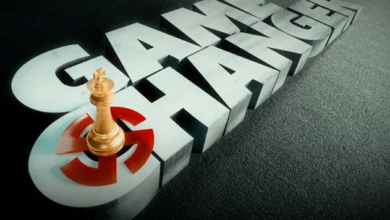Innovative Landscaping Trends: Transforming Dubai’s Urban Spaces

Dubai, a city synonymous with innovation and modernity, is witnessing a transformation in its urban landscape unlike any other. As the skyline evolves with towering skyscrapers and architectural marvels, so too do the city’s outdoor spaces undergo a revolution driven by innovative landscaping trends. From sleek public parks to vibrant streetscapes, Dubai’s urban areas are being reimagined as dynamic, sustainable environments that inspire and engage residents and visitors alike. For more information check out landscape company in dubai
Greening the Concrete Jungle
In a city where concrete and steel dominate the skyline, the integration of green spaces has become a top priority for urban planners and landscape designers. Dubai’s urban oasis initiatives aim to counterbalance the urban heat island effect, improve air quality, and promote biodiversity amidst the bustling metropolis.
One of the most ambitious projects, Dubai’s Safa Park transformation, is turning a once conventional park into a sustainable green lung for the city. With native plant species, shaded walkways, and eco-friendly amenities, the park serves as a model for future urban green spaces, blending functionality with natural beauty.
Vertical Gardens: Greening the High-Rise Landscape
As land becomes increasingly scarce in urban environments, vertical gardens are emerging as a solution to maximize greenery in limited spaces. Dubai’s iconic skyscrapers are embracing this trend, adorning their facades with lush vertical gardens that not only enhance aesthetic appeal but also improve air quality and reduce energy consumption.
The Emirates Towers, for instance, boast one of the world’s largest vertical gardens, spanning over 4,000 square meters and featuring more than 15,000 plants. This innovative approach to landscaping not only softens the city’s skyline but also sets a new standard for sustainable urban design.
Smart Landscaping: Integrating Technology for Efficiency
In Dubai’s quest for smart city status, technology plays a pivotal role in shaping the future of urban landscaping. From smart irrigation systems that monitor soil moisture levels to automated lighting solutions that adjust to natural light patterns, the integration of technology ensures efficient resource management and minimal environmental impact.
Dubai’s Sustainable City exemplifies this marriage of technology and sustainability, with its state-of-the-art irrigation systems, renewable energy sources, and green building practices. Through data-driven insights and real-time monitoring, urban landscapes are optimized for maximum efficiency and resilience in the face of climate change.
Artistic Expression: Sculpting Urban Spaces
Beyond functionality, landscaping in Dubai is also a canvas for artistic expression and cultural identity. Public art installations, sculptures, and interactive features enrich the urban experience, fostering a sense of community and belonging amidst the urban sprawl.
Dubai’s City Walk, for example, is a vibrant outdoor destination where art seamlessly blends with urban life. From whimsical sculptures to colorful murals, every corner of City Walk is an invitation to explore, engage, and be inspired by the intersection of art and nature.
Conclusion: A Green Vision for Tomorrow’s Cities
As Dubai continues to evolve into a global hub of innovation and sustainability, its urban landscapes serve as a testament to the city’s unwavering commitment to creating livable, resilient environments for generations to come. Through innovative landscaping trends, Dubai is not only transforming its physical infrastructure but also reshaping the way people interact with and experience urban spaces.
With a blend of green technology, artistic expression, and sustainable design principles, Dubai’s urban landscapes are poised to set new standards for cities around the world. As the city embraces the challenges and opportunities of the 21st century, its commitment to innovation and excellence in landscaping will remain at the forefront of its urban evolution.




